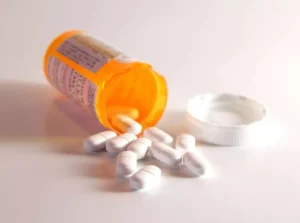
Fortunately, researchers know more than ever about how drugs affect the brain and have found treatments that can help people recover from drug addiction and lead productive lives. Drug use can have significant and damaging short-term and long-term effects. Taking some drugs can be particularly risky, especially if you take high doses or combine them with other drugs or alcohol. Physical addiction appears to occur when repeated use of a drug changes the way your brain feels pleasure.
Treatments Targeting Cognitive Deficits
But the impact of cocaine use can last for months, years or a lifetime. If you think someone you love is using cocaine, encourage them to seek help. Ask a healthcare provider about programs and services for people affected by another person’s cocaine use. Finally, https://ecosoberhouse.com/ ketamine has shown some promise as a novel treatment for SUDs including CUD. NMDA receptors are believed to be the main glutamate receptor involved in learned behavior, and ketamine, through NMDA receptor antagonism, modulates glutamate signaling.
Cocaine Use Disorder (CUD): Current Clinical Perspectives
Researchers are evaluating drug treatments that help people stop using cocaine. Given the heterogeneity of the patient population involved – each individual with CUD has varying illness severity, personal characteristics, backgrounds, and social support – personalized, multi-dimensional treatment approaches are needed. Identifying risk factors for SUDs, including genetic,235 behavioral, and environmental, may help to predict treatment cocaine addiction treatment course and thus assist in treatment selection. Potential short-term side effects include overdose, addiction (cocaine use disorder) and withdrawal. Long-term side effects may include serious and potentially life-threatening medical issues like heart failure, stroke or infections. Cocaine and other substance abuse disorders are complex, involving biological systems as well as myriad social, familial, and environmental factors.

Recognizing an overdose
If you do attend rehab, continuing treatment afterward (aftercare) is important to help you avoid relapse. Drug use disorder, or addiction, is a complicated disease that involves changes to your brain structure. Many issues play a role, including other mental health disorders, your background, and your environment. The most important part of any treatment plan is to give up the drug right away. Many people who are addicted to cocaine go through a phase called withdrawal when they first do this. Withdrawal can be difficult, so it may be best to do it with the help of a medical professional.
How Do People Use Cocaine?
NAc nerve cells make five types of dopamine receptors; drugs that affect the functioning of one or more of them could, in theory, produce a palliative effect on cocaine addiction. Efforts are under way in each of these areas, including clinical trials, but so far no clear breakthrough has been reported. The short-term physiological effects of cocaine include constricted blood vessels, dilated pupils, and increased temperature, heart rate, and blood pressure. Large amounts of the stimulant (several hundred milligrams or more) intensify the user’s high, but may also lead to bizarre, erratic, or violent behavior.


Cocaine is a powerful drug that can cause serious side effects that can happen very quickly after you start using the drug. The 2021 (U.S.) National Survey on Drug Use and Health (NSDUH) concludes 4.8 million people age 12 and older used cocaine in 2020. In comparison, the same survey results show 52.8 million people age 12 and older used marijuana and 1.1 million people used heroin. Adrienne Santos-Longhurst is a freelance writer and author who has written extensively on all things health and lifestyle for more than a decade.
- Although potential pharmaceutical treatments for cocaine dependence are ongoing, there are currently no medications approved by the U.S.
- This means that a person may need to use larger amounts of cocaine more frequently to feel the same short-term effects.
- Cocaine, also known as coke, is a powerful stimulant derived from the coca plant.
- Most importantly, treatment offers you the chance to learn how to manage your thoughts, feelings, and emotions without feeling like you need to use substances.
- Every individual is born with a unique combination of roughly 30,000 genes.
- If you’re not ready to approach a health care provider or mental health professional, help lines or hotlines may be a good place to learn about treatment.
- Ingested cocaine can cause severe bowel gangrene, due to reduced blood flow.
- It’s possible to die from an overdose of crack or any other type of cocaine.
- While cocaine and crack cocaine highs are brief, the drug may stay in your system for up to three days.
- Support systems such as friends, family, treatment facilities, and other people recovering from addiction, can help you push through this phase.



